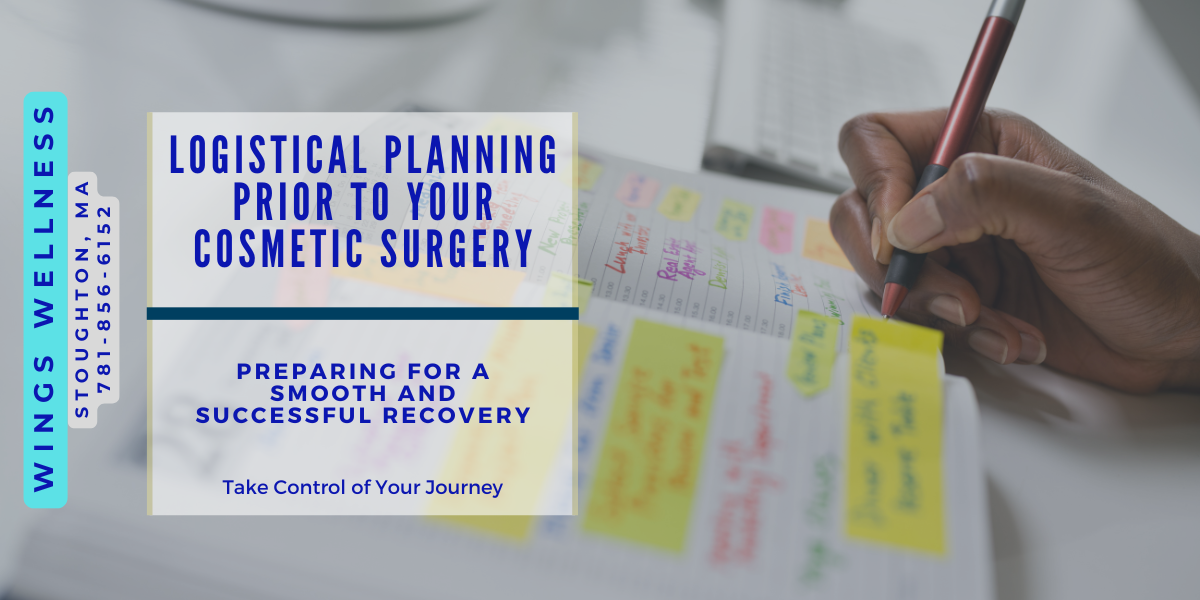Explore 👥 Memberships, 💳 Payment Plans, and 🏷️ Current Offers!

Preparing for cosmetic/plastic surgery involves more than selecting the right surgeon—it requires a solid logistical plan to ensure a stress-free recovery. Whether you’re traveling out of state, out of the country, or staying local, this guide will help you plan for a smooth healing process, with tips tailored to various recovery scenarios, including recovering alone or with family support.
When traveling domestically for surgery, preparation is key to minimizing stress:
1. Accommodations:
Look for recovery houses near your surgical facility. These often provide meals, basic medical care, and an environment tailored to post-op patients.
Extended-stay hotels with kitchenettes, private bathrooms, and comfortable beds are another good option. Request a room on the ground floor or near elevators for convenience.
2. Transportation:
Arrange reliable transportation to and from the surgery center and follow-up appointments. If driving isn’t an option, consider hiring a private medical transport service or scheduling rides through a trusted rideshare app.
3. Post-Op Care:
Book a Manual Lymphatic Drainage (MLD) therapist in advance to support your recovery. Wings Wellness offers discounted packages of 5, 10, or 20 treatments and memberships to ensure ongoing care. Pre-paying can reduce post-op stress and save you money.
4. Emergency Plan:
Identify a local contact who can assist you if needed.
Provide your recovery address and emergency contact details to your surgeon.
Planning for surgery abroad requires additional considerations:
Recovering solo can be challenging but manageable with the right preparations:
1. Hire Help:
Consider hiring a nurse or home health aid/caregiver for the initial recovery period to assist with medication, meals, and hygiene.
2. Stock Your Home:
Prepare with easy-to-reach snacks, water bottles, and pre-cooked meals.
Have all necessary medications and medical supplies on hand, including compression garments, gauze, and ice packs.
3. Set Up Your Space:
Arrange a recovery zone with a recliner or adjustable bed, extra pillows, and a table for essentials like water and medication.
Remove tripping hazards, like loose rugs, and add non-slip mats in the bathroom.
4. Emergency Contacts:
Share your recovery timeline with a trusted friend or neighbor who can check in on you.
If family members will support you during recovery, ensure they’re well-prepared:
No matter your recovery scenario, your living space should support your healing:
By addressing these key areas and using the checklist, you can take control of your recovery journey, whether traveling or staying local. For personalized care and recovery services, including Manual Lymphatic Drainage therapy, contact Wings Wellness today to ensure your healing process is smooth and stress-free.